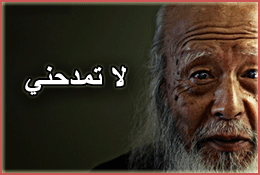-
na7la saysSun 9th May 10@06:10 pmThanks Mohamed and Ehab for another great lesson! Could you please shed some more light on the conjugation of the verb to let, I could not find anything about it, only in one dictionary the base verb is indicated as ( اخلى). Shokran :-)
-
question on the same subject : in my hans wehr dictionary it is labeled as a stem 2 verb so I expected to see : iu instead of ia for the 3rd person ? where do I miss it ? seems to be a very odd verb - cheers
-
Hey, I got the impression, the AP community got down into hibernation.... Folks, it is springtime!!!! Even though we have terrible hail showers here in Munich right now, could anyone post a comment to plop's and my question???
-
Oh, it is just too many things in the plate Na7la. Here is some of the conjugations for (خلّى):
He let, 7'alla, خلّى
She let, 7'allat, خلّت
They let, 7'allo, خلّوا
He lets, yu7'ally, يخلّي
She lets, tu7'ally, تخلّي
I let, u7'ally, أخلّي
We let, nu7'ally, نخلّي
As for Plop's question, I really didn't get what verb he is asking about, is it 7'alla as well? but what (iu) and (ia) has to do with it? Probably more details in the question would help. -
Dear na7la,
The verb you're interested in is very common in spoken Arabic, and it has been discussed by numerous Internet users. There is a good example of the verb in a well-known song by Haifa Wehbe: Laik al-wawa (the third main clause in the opening line). You can listen to the song on YouTube. -
thanks Ehab - wrote already a reply but did not appear so I do it again: you answered my ? by filling in the conjugation - indeed you use YU and not Ya for the 3rd pers.sing.present tense - so it is a stem 2 verb (at least that is how I did learn it : stem 2,3 and 4 take U in first second and third person sing. )thanks a million
-
In the transcript's second line, is the word for 'my head' missing after 'يدخل في' or is this just the expression?
-
Damillar, I came across the same question, but in the lesson Ehab and Mohamed explain that fiya (في) means "inside me" so I assume it is the expression, which translates into "into my head" in English.
-
That’s right, na7la. “al-shaytaan yadkhul fiiya” literally means “*the devil enters in me”, but since this word combination is impossible in English we’ve no choice but to say “I’m afraid the Devil might get inside my head” or “I’m afraid the Devil might get inside my mind”. We have to add the modal auxiliary “might”, replace “enter” by “get into” and substitute “my head” or “my mind” for “me”.
By the way, have you had a look at that video I recommended in my comment on “A wish”? I think the video is excellent. It’s full of useful words and expressions. Perhaps Ehab and Mohammed might consider presenting an excerpt in one of their podcasts. -
Thanks Desmond and na7la - it makes sense now - I think there's an extra 'ee' on the fee to make it 'in me' indicated by the mark above the ي
Beginner - Don't praise me
| May 7th, 2010 | 1 comment |
Although there are advantages to praising people, for example it builds up confidence, there is a slight danger that the person being praised might end up thinking he's too big for his own boots! Here we have a similar situation, but the wise man in the dialogue understands that modesty is important.
 MP3 Download MP3 Download
|
 PDF Transcript PDF Transcript |
 Audio Transcript Audio Transcript Exercise Exercise |
| Free | Basic | Premium |
|---|
Join the Discussion

Like this on facebook!

Random Word
ملابس |
|

Advertisement


